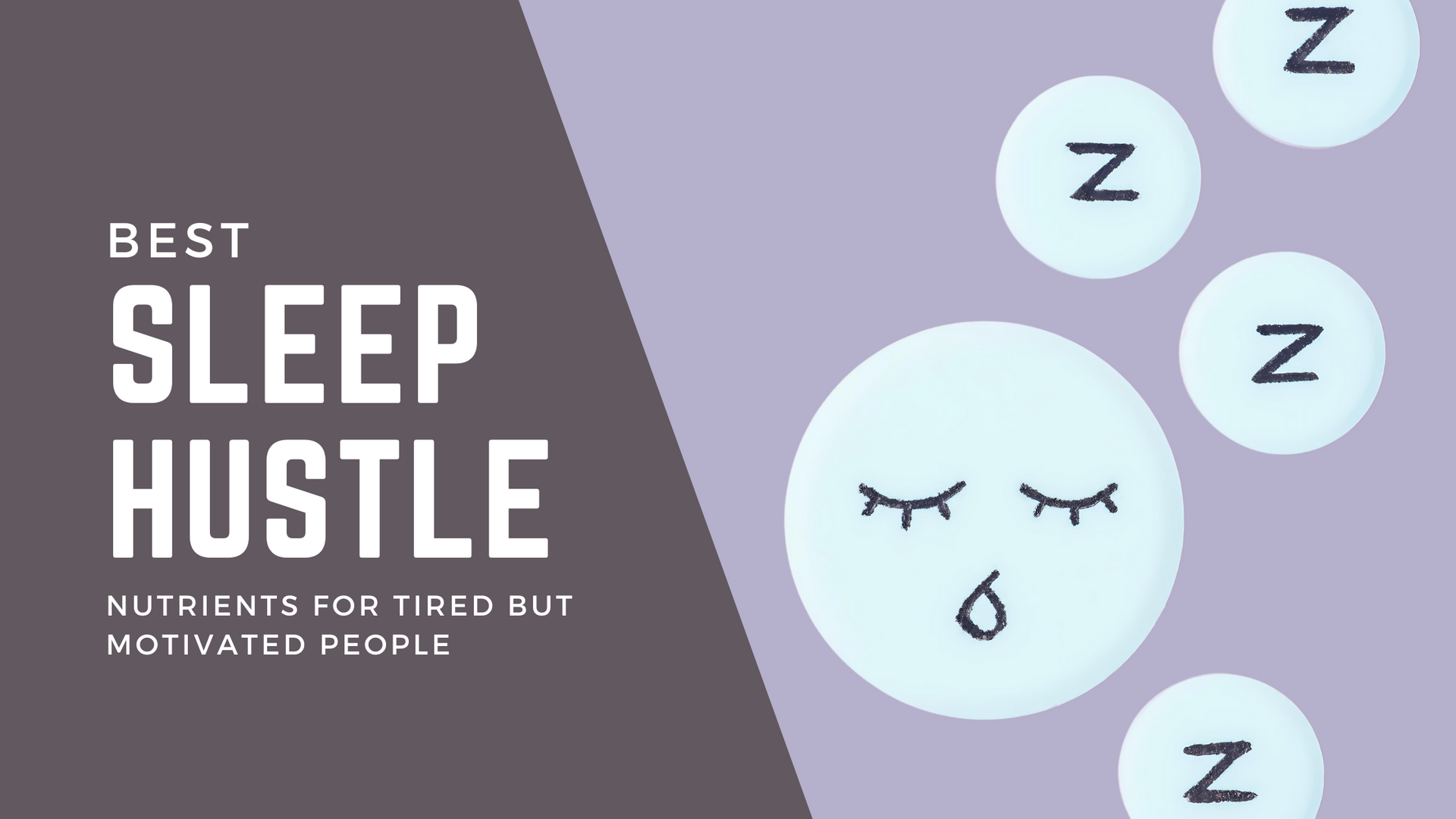Dr. Julia St. Clair is a Naturopathic Doctor running a private practice, Simply Refined Health in sunny Gilbert, AZ. Her goal is to simplify the process and help you refine your treatment options to what works for you along your healing journey. Dr. St. Clair enjoys cooking, yoga, spending time with her husband, and participating in church activities. She always wants to provide relevant information that you are interested in, so if you want to hear about a certain topic feel free to reach out with your topic or questions!
10 ways to Get Rid of Stress
Dr. Julia St. Clair, ND • December 3, 2019
Manage your stress like the powerful person you are!

When we are stressed, it’s quite easy to develop negative thinking patterns because we become frustrated by our challenges and frequent feelings of being overwhelmed. This negative outlook then makes it even harder for us to manage those challenges and move forward and break through the stress cycle.
Practicing positive thinking helps to focus on our strengths and accomplishments, which increases happiness and motivation. This, in turn, allows us to spend more time making progress, and less time feeling down and stuck. The following tips provide practical suggestions that you can use to help you shift into more positive thinking patterns:
1. Take Good Care of Yourself
It's much easier to be positive when you are eating well, exercising, and getting enough rest. Often in times of stress, these are the first to go, but these are also some of the most important keys to helping us decrease the effect stress has on the body. So, if you are feeling more irritable and anxious due to everything you are having to deal with, begin by checking in with these three things. One of the biggest things that I hear from patients is that they don't have time for these because of work, school, etc. However, you have to know. no one else is going to make time for these things, except for you.
All of the demands of life will take up time until you carve out time. Add them to your schedule to take care of yourself. This includes meal breaks at work.
2. Remind Yourself of the Things You Are Grateful For
Stresses and challenges don't seem quite as bad when you are constantly reminding yourself of the things that are right in life. Taking just 60 seconds a day to stop and appreciate the good things will make a huge difference. One way that I like to do this by gratitude journaling before bed. This can also improve sleep quality and set you up to handle stress better the next day.
3. Look for the Proof Instead of Making Assumptions
A fear of not being liked or accepted sometimes leads us to assume that we know what others are thinking, but our fears are usually not reality. If you have a fear that a friend or family member's bad mood is due to something you did, or that your co-workers are secretly gossiping about you when you turn your back, speak up and ask them. Don't waste time worrying that you did something wrong unless you have proof that there is something to worry about.
4. Refrain from Using Absolutes
Have you ever told a partner "You're ALWAYS late!" or complained to a friend "You NEVER call me!"? Thinking and speaking in absolutes like 'always' and 'never' makes the situation seem worse than it is, and programs your brain into believing that certain people are incapable of delivering. Instead of trying to use absolutes to communicate the error in the other person, focus on how you are feeling and how you will handle and communicate the feelings instead.
5. Detach From Negative Thoughts
Your thoughts can't hold any power over you if you don't judge them. If you notice yourself having a negative thought, detach from it, observe it, and don't react to it. A thought does not equal reality.
6. Squash the "ANTs"
In his book "Change Your Brain, Change Your Life," Dr. Daniel Amen talks about "ANTs" - Automatic Negative Thoughts. These are the bad thoughts that are usually reactionary, like "Those people are laughing, they must be talking about me," or "The boss wants to see me? It must be bad!" When you notice these thoughts, realize that they are nothing more than ANTs and squash them! This is a perfect time to combat negative thoughts with gratitude. Instead say, "I am grateful that humans can experience laughter and connection," or "I am thankful for a job that provides for me and my family."
7. Practice Lovin', Touchin' & Squeezin' (Your Friends and Family)
You don't have to be an expert to know the benefits of a good hug. Hugs can release endorphins, dopamine, and serotonin that will increase the mood and decrease tension in the body. Positive physical contact with friends, loved ones, and even pets, is an instant pick me-up. One research study on this subject had a waitress touch some of her customers on the arm as she handed them their checks. She received higher tips from these customers than from the ones she didn't touch!
8. Increase Your Social Activity
By increasing social activity, you decrease loneliness. Surround yourself with healthy, happy people, and their positive energy will affect you in a positive way! You can find these people at your work, school, church, meet-up groups, group fitness classes, farmer's markets and more! You can look in the paper or google events near you to get out into the community more.
9. Volunteer for an Organization, or Help another Person
Everyone feels good after helping. You can volunteer your time, your money, or your resources. This often gets our mind off of us and what is lacking and lets us shine with the good we do have to offer those around us. The more positive energy you put out into the world, the more you will receive in return.
10. Use Pattern Interrupts to Combat Rumination
If you find yourself ruminating, a great way to stop it is to interrupt the pattern and force yourself to do something completely different. Rumination is like hyper-focus on something negative. It's never productive, because it's not rational or solution-oriented, it's just excessive worry and stress. Try changing your physical environment - go for a walk or sit outside. Close your eyes and take 10 deep breaths, focusing on your breaths. Focus on things you are thankful for. You could also call a friend, pick up a book, or turn on some music.
It’s important to understand the signs of stress and react with a positive way of handling it such as these 10 tips. The key to managing stress is making sure that you look after YOU. As your happiness levels increase, your stress levels decrease. Have a look at your work life, your personal life and social life to see if there are any areas you can create more happiness. You might be surprised on what you find.

The thought that if you are a "healthy person" you will never get sick is a myth. In fact, i t’s perfectly normal to get sick every once in a while. This shows that our immune system is functioning the way that it was created to and defending us from unwanted invaders. With the onset of the pandemic, boosting the immune system to fight off the coronavirus has been a massive topic. But I feel like sometimes this topic gets thrown out and sets unspoken expectations that if your immune system is “boosted” that it will keep you from getting sick. And honestly, it’s all a matter of semantics, but I feel the need to clarify in clear words what the goal is for a healthy immune response. My true goal as a licensed physician and Naturopathic Doctor when I say “boosting the immune system” is to help your body correctly and effectively take care of bacteria and viruses (any unwanted microbe) that may enter your system. This does not mean that you will not get sick with the flu, cold, or whatever is going around. This means that your body is able to quickly identify and eliminate the intruder given the body’s natural elimination pathways. This often looks like producing mucus, coughing, healthy fever levels, etc. All the symptoms that people associate with being sick, is your body’s immune system functioning the way it is supposed to. The length of appropriate symptoms varies based on what the body may be fighting off. For example, colds and flus can last from 3 to 7 days. The key is that the body is able to react, recover and heal with support of the immune system and the person returns to normal quite quickly within a matter of days. The goal of optimizing immune system function is avoiding the UNWANTED results of a dysfunctioning immune system. This can be one of two things. The dysfunctional immune system can be underfunctioning or overfunctioning. Underfunctioning - This is where the body has a harder time identifying and overcoming the invader. The infection can then get a stronger hold and create worse symptoms, or take longer to eliminate and drag the symptoms out for a long time. This is often seen as being sick for weeks and having lingering symptoms that just don’t seem to go away, or getting sick frequently as if they keep getting “reinfected.” Many lifestyle, nutrition, medication factors can go into this. Suppression of symptoms and therefore suppression of the immune system reaction can also contribute to this. (That’s a whole other topic for discussion though.) Overfunctioning - Where the immune system finds the intruder and then overreacts, creating worse symptoms than necessary to eliminate it. The most common manifestations of an overactive immune system are things like asthma, autoimmune diseases, and asthma. More short term manifestation can can sometimes be the picture that we see in regards to the acute respiratory distress caused by a cytokine storm in Covid-19 patients. The immune system is overreacting and actually causing unwanted effects in the person. And it must be noted that the imbalance of the immune system can be a combination of both the under reaction and the overreaction. For example, the body can under react to an infection which can then later create an overreaction if the infection gets bad enough. So there is a huge spectrum and so many different ways dysfunction of the immune system can occur. The important thing to be able to recognize when there is dysfunction and how to manage that. When creating a healthy and optimized immune system, the goal is NOT to never get sick. The goal is to have an immune system that responds correctly and effectively toward pathogens, because sometimes... getting sick actually means that the immune system is functioning the way it should. If you are looking for help optimizing your immune system. I am doing telehealth consults for those in the state of Arizona! Feel free to schedule your appointment by clicking the button at the top of your screen. Sources: Reyes-Silveyra J, Mikler AR. Modeling immune response and its effect on infectious disease outbreak dynamics. Theor Biol Med Model. 2016;13:10. Published 2016 Mar 5. doi:10.1186/s12976-016-0033-6 Zhao M. Cytokine storm and immunomodulatory therapy in COVID-19: role of chloroquine and anti-IL-6 monoclonal antibodies [published online ahead of print, 2020 Apr 16]. Int J Antimicrob Agents. 2020;105982. doi:10.1016/j.ijantimicag.2020.105982 D'Elia RV, Harrison K, Oyston PC, Lukaszewski RA, Clark GC. Targeting the "cytokine storm" for therapeutic benefit. Clin Vaccine Immunol. 2013;20(3):319–327. doi:10.1128/CVI.00636-12

There has been lots of talk about what has become known as "gut-health.” Even the Johns Hopkins Medical Center website mentions it, one of the most well-respected hospitals and Medical Schools in the United States, there is a good reason for this. Hidden within the walls of your digestive system is a nervous system layer... what is known as “your second brain” and this “brain in your gut” is changing the way that we look at the links between mood, digestion, health and even the way that you think.

The thyroid is a small butterfly shaped gland at the bottom of of the neck. This gland is in charge of the "metabolism" or in other words, the energy of the body. Thyroid hormone plays a role on each cell of the body. The hormone enters the cell and activates the DNA to perform the job that the cell is made to do. If the cell is not getting the hormone it needs, then it won't function properly. This can be any cell in the body, which is why the symptoms of low thyroid can be so widespread throughout the body.




